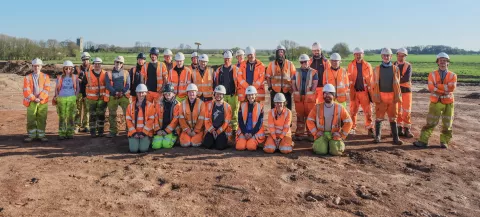Our people
Executive Team
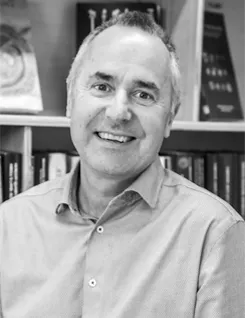
As CEO, Ken is responsible to the Board of Trustees of Oxford Archaeology for the leadership and effective operation of the business as a whole. He provides the strategic lead in the development of OA, both as a business in a competitive environment and as a charitable organisation involved in archaeological research and education for the public benefit.
After graduating in 1986 with a BSc (Hons) in Environmental Science, Ken worked as a geologist before transferring to archaeology in 1988. Since joining Oxford Archaeology in 1995, Ken has managed a wide range of archaeological projects and has particular experience in the management of complex mitigation schemes within large-scale infrastructure works, development of innovative and cost-effective approaches to archaeological mitigation, implementation of digital recording systems, databases and GIS analysis, and the provision of archaeological planning advice. He is also a qualified Health and Safety Advisor.
From 2016-2021, Ken was the Regional Manager in Oxford, responsible for the successful operation of that office.
He is a Member of the Chartered Institute for Archaeologists (MCIfA) and a Fellow of the Society of Antiquaries (FSA).
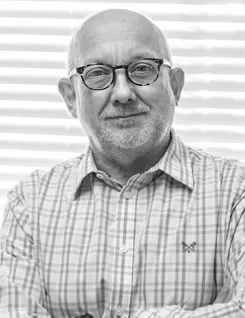
Andy joined Oxford Archaeology as Chief Financial Officer in March 2021. Andy is a very experienced financial professional and joined OA after spending over a decade in global roles in the international charity sector. Prior to this he worked in industry as well as in business and technology consultancy. In addition to financial management, Andy has extensive experience in business change, technology delivery, programme management and digital transformation.
At OA, Andy has overall responsibility for the leadership of finance, legal, HR, property and is also the interim Chief Information Officer. He is currently overseeing the major business system and IT infrastructure modernisation for the charity.
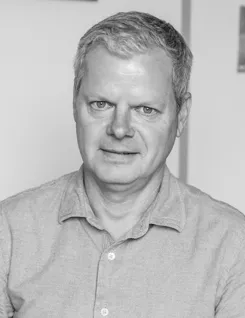
Dan has worked for Oxford Archaeology since 1992, starting as a volunteer and working his way up the ranks of the fieldwork team, with a focus on urban archaeology. He has extensive experience of project management and the pursuit of new contracts, gained from his years as a Senior Project Manager and then as head of the Oxford Archaeology Fieldwork and Contracts teams at our Oxford office. As COO, he is responsible for operations company-wide, ensuring quality and compliance across all Oxford Archaeology projects, including our ISO 9001, 14001 and 45001 certification. Dan leads on OA’s key infrastructure projects and partnerships, particularly the Oxford-Cotswold Archaeology JV.
Dan is responsible for Health, Safety and the Environment and is a Technical Member of the Institute of Safety and Health (IOSH). He also leads on training. He is a Director of the Federation of Archaeological Managers and Employers (FAME), a Member of the Chartered Institute for Archaeologists (MCIfA), and a Fellow of the Society of Antiquaries (FSA).
Board of Trustees
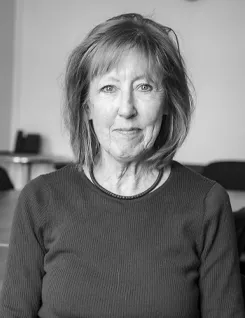
Jan’s professional career in archaeology started in fieldwork in the midlands and north of England. Moving into local government she managed both curatorial and fieldwork teams, most recently in Gloucestershire as County Archaeologist. For the last 10 years she has worked part time as a consultant on research projects, current sector issues, and organisational reviews. Her trustee and advisory roles have included Chair of the Association of Local Government Archaeologists, trustee of the Council for British Archaeology, Chair of the Institute for Archaeologists, and membership of the Historic England Advisory Committee. She is currently a Trustee of the Heritage Alliance, President of her county archaeology society, a Member of CIfA and a Fellow of the Society of Antiquaries of London.
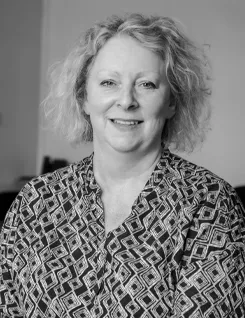
Alison has had a connection with Oxford Archaeology for over 30 years. She worked for Oxford Archaeology on the Eynsham Abbey site in the summer of 1990 before embarking on her doctoral research. In the late 1990s and 2000s she organised placements at Oxford Archaeology for students on the Professional Archaeology programme at Oxford University Department for Continuing Education (OUDCE).
She is currently Assistant Director at OUDCE, with responsibility for the Department’s undergraduate and postgraduate award-bearing programmes and accredited short courses. She teaches on a number of archaeology courses and supervises DPhil students.
Her fieldwork has been in central Italy and her research interests include Roman landscape archaeology, Roman urban life, and individuality and expression of identity in the Roman world.
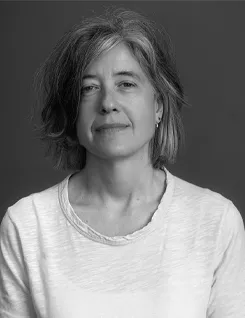
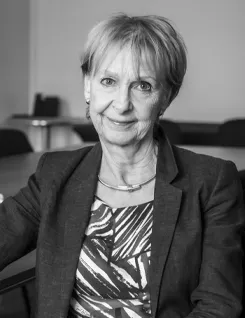
Gill has been a cultural heritage consultant for over 35 years working in both commercial and charity environments. She has a comprehensive knowledge of the heritage sector and has advised on the historic environment aspects of a number of major national infrastructure projects including Heathrow Terminal 5 and London Gateway Port, Essex. She is skilled at project planning and has been an expert advisor, mentor and monitor for the National Lottery Heritage Fund for over 20 years, supporting the development and delivery of major capital projects.
She has extensive experience of governance and business planning, having undertaken strategic planning reviews and option studies for a wide variety of organisations including Historic England and Cadw. She has served on the boards of a number of heritage and arts bodies, including as President of the Society of Antiquaries of London from 2014-18.
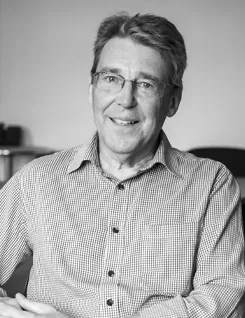
Paul joined the Trustees in 2020 having retired from a career in professional archaeology. A graduate from the University of Wales (University College Cardiff), after a stint on the digging circuit in the mid 1970s, Paul went into local government, first in North Yorkshire where he created the Sites & Monuments Record for England’s largest county and then in Berkshire, where he also developed innovative planning policies that helped form a basis for government planning policy in PPG 16. Since 1991 he has worked in archaeological planning consultancy and was a founding Director of CgMs Consulting. Since retiring Paul has undertaken a study of Roman agricultural landscapes in Midland and southern England and is currently preparing a D. Phil thesis at the University of Oxford on Romano-British rural settlement and farming.
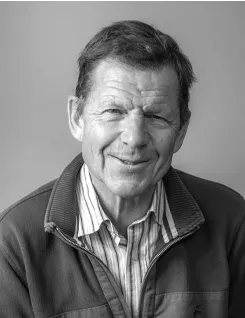
Richard is an Associate Fellow at the Saïd Business School, University of Oxford. His current projects include programmes for mid-career Indian professionals and the Archbishop Tutu Leadership Fellowship Programme.
Richard has worked at Oxford University for over 20 years both at the Business School and before that as the administrator of the Department of Materials where he helped set up the University’s Science Park at Begbroke. His early professional experience was as a UK civil servant and diplomat. He has also worked in the water industry as an economic consultant and specialist journalist. Richard is an active Friend (and former Chair of Friends) of the Pitt Rivers Museum. Richard brings to Oxford Archaeology broad experience as a Trustee as well as familiarity with practical management in tight financial circumstances.
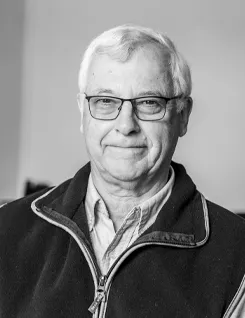
Simon has worked in the education during his professional career and has experience in Charitable Trusts. He has kept an active interest in Archaeology since he studied it in his undergraduate days. As well as being a Trustee of Oxford Archaeology he is a Trustee of The Vale of the White Horse and Ridgeway Archaeological & Historical Trust. He has also a long association with the Friends of the Ashmolean.
His academic interests extend to local history and he is a member of the Oxfordshire Architectural and Historical Society. He sees public benefit and educational outreach as essential aspects of Oxford Archaeology’s role in the community.
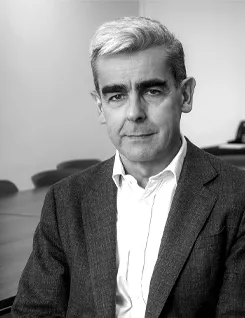
Steve has extensive finance and general management experience as a board member of public and private companies. After qualifying as an accountant with Coopers & Lybrand, he worked as a strategy consultant and then spent 10 years in the retail sector at Homebase and B&Q. Subsequently he was a main board director in businesses covering telecoms, commercial property, residential property services and financial services.
During his commercial career Steve has led delivery of new products and services, strategic acquisitions and disposals, investment projects, business turnarounds, cost saving programmes, debt and equity refinancings, and major systems changes.
Most recently Steve moved into the charity sector during the pandemic as bursar and trustee of Keble College, Oxford before retiring from executive roles in late 2024.
Steve has a degree in Natural Sciences from Cambridge University and is a Fellow of the Institute of Chartered Accountants in England and Wales.
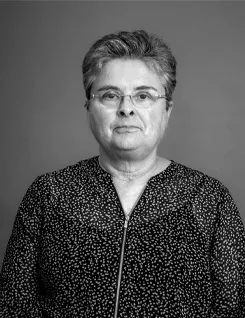
Sue specialises in working with charities and social enterprises and is passionate about the difference these organisations can make, both in local communities and in society. Her business expertise and skills come from a career in banking, working with charities and social enterprises at Triodos Bank UK and as CEO of a similar regulated finance organisation in New Zealand.
Returning to the UK she set up a new social investment programme for an endowed charitable foundation and worked for a place-based investor, developing a new social impact investment fund. Sue has a longstanding personal interest in history and archaeology and is based in Bristol working as a charity trustee, non-executive director and consultant.
Regional Managers
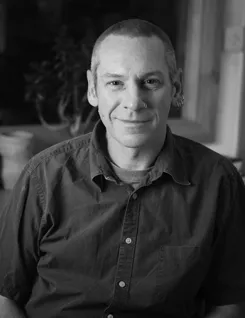
Fraser has been working in British archaeology since the late 1980s and graduated with a BA in Archaeology and Prehistory from Sheffield University in 1995. He joined Oxford Archaeology in 1998 and is Regional Manager for our Lancaster office. Fraser is also a qualified Health and Safety Advisor and helps co-ordinate and implement health and safety policy.
He has considerable project management experience, overseeing projects, in both rural and urban environments, from tender through to publication. He has routinely undertaken work for the building construction, mineral extraction, transport and energy sectors, and has particular experience of large-scale infrastructure projects, including road schemes, long-distance pipelines and airports. Fraser has a keen interest in British prehistory, especially the Mesolithic and Neolithic periods and has expertise in lithic sites and waterlogged environments. Digital recording techniques and geospatial analyses are also areas of interest. Notable recent projects include the Asselby to Pannal Natural Gas Pipeline, the Isle of Man Airport Runway End Safety Area project, Carlisle Northern Development Route, the A487 Caernarfon to Bontnewydd Bypass, and the A585 Windy Harbour to Skippool Bypass.
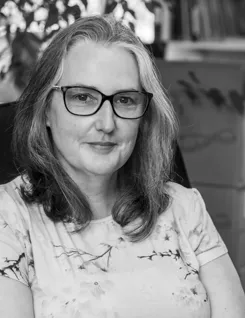
Katrina has worked for Oxford Archaeology since 2004 and has over 15 years' experience in professional archaeology in the UK and abroad. As well as being OA South's Regional Manager, she also manages a portfolio of projects. She has a particular interest in early Roman Britain and the archaeology of World War II.
Katrina holds a PG Dip in Forensic Archaeology from Bournemouth University and an MA in Classical Studies from Victoria University of Wellington, New Zealand. She is an Associate of the Chartered Institute for Archaeologists (ACIfA).
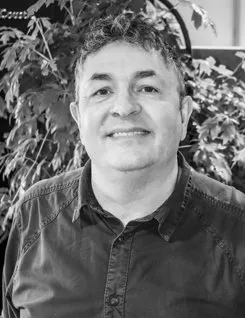
Stephen has over 30 years' experience in British, French and North American archaeology. He graduated from the University of Sheffield with a BA in Prehistory and Archaeology and has an MPhil in Archaeological Heritage and Museums from the University of Cambridge.
He is a leading proponent of Public Archaeology and has the responsibility for the education and outreach projects across Oxford Archaeology, managing the Oxford Archaeology Outreach service. Stephen has considerable experience in successfully obtaining grant aid for this type of heritage project.
He has extensive experience in project management, contracts and the heritage sector in general. Stephen is a Heritage Management and Roman specialist, and continues to pursue research projects in these areas, predominately but not solely in the Eastern Region. Stephen is a full Member of the Chartered Institute for Archaeologists (MCIfA), a member of the Council for British Archaeology (East) and sits on the council of the Cambridge Antiquarian Society.
Senior Management Team
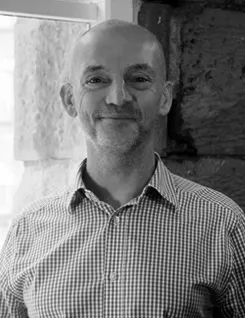
Alan has over 30 years' experience in professional archaeology in the UK and abroad and is a Member of the Chartered Institute for Archaeologists (MCIfA). He graduated in 1986 with a BA (Hons) in Ancient Mediterranean Studies from Bristol University, gained an MA (distinction) in 1988 at the Institute of Archaeology, UCL, and a PhD from Cambridge University in 1995.
Alan worked for Oxford Archaeology (OA) between 1995-7 and re-joined the company in 2001 working in our Lancaster office. He has managed a wide range of archaeological projects and has particular experience in the management of complex mitigation schemes within large-scale infrastructure works.
Since 2003, Alan has been the Operations Manager in Lancaster, is part of the Regional Management Team and also the Senior Management Team for OA. In his current role, he is responsible for fieldwork in the Lancaster office, overseeing quality and compliance across projects.
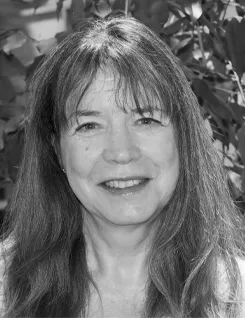
Liz oversees the post-excavation research and publications function at our Cambridge office. She has worked for Oxford Archaeology (and its predecessor) for twenty years. Her job is to manage all aspects of post-excavation work, including the finds, environmental and graphics teams. She also edits all of the academic and popular publications produced by the Cambridge team, ensuring that the highest academic standards are maintained and that projects are delivered on time to clients.
Having graduated from the University of Nottingham with a degree in Ancient History and Archaeology, she also has a PhD from the University of East Anglia. Liz has considerable experience in managing complex projects and specialises in urban Late Saxon and medieval archaeology, with particular interests in castle and cemetery studies.
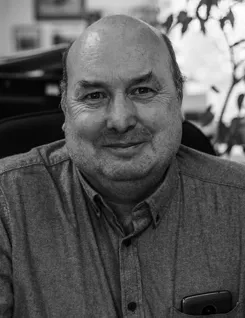
Gerry joined Oxford Archaeology as an Archaeologist in 2000, after graduating from the University of Reading. Gerry spent the next decade or so excavating sites as an Assistant Supervisor, Supervisor and Project Officer before gaining promotion to Senior Project Manager in early 2013. During his time as a manager, he ran a diverse range of projects, from Palaeolithic flint sites to industrial complexes, via work for the Oxford Colleges, but specialised in large-scale rural sites of prehistoric and Roman date. He has also undertaken the post-excavation analysis of sites and has worked extensively in the Contracts Department, providing high quality tenders for new work opportunities. Additionally, Gerry has responsibility for overseeing the fieldwork training programmes at the Oxford office, managing staff progression through the Graduate Trainee to Project Officer programmes. Gerry was promoted to Head of Fieldwork for the Oxford office in early 2025 and is passionate about continuing to deliver the high standards of work undertaken by our fieldwork teams. Gerry is a Member of the Chartered Institute for Archaeologists (MCIfA) and holds a Site Management Safety Training Scheme (SMSTS) qualification.
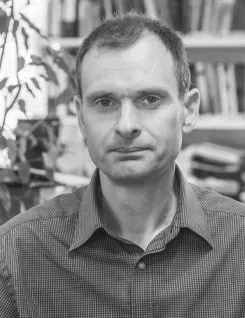
Leo has worked in the Oxford office of Oxford Archaeology as Head of Post-Excavation since 2016. In this role, he manages the Post-Excavation department and oversees the publication programme, as well as being part of the Senior Management team in Oxford. He previously held positions at Reading, Leicester and Bristol Universities, and has published widely on the later Bronze Age and Iron Age in northwest Europe. He has a PhD in Archaeology from the University of Cambridge, focusing on the Danish Iron Age. He is a Fellow of the Society of Antiquaries of London and a full Member of the Chartered Institute for Archaeologists.
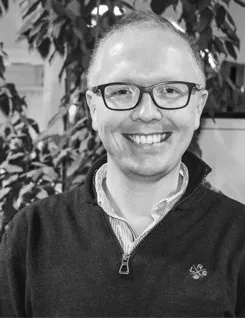
Pat has worked in commercial archaeology since 2008 and holds a BA in Archaeology and Ancient History from Reading University.
In his current role as Senior Project Manager, Pat co-ordinates the archaeological fieldwork and post-excavation programmes for large residential, commercial and NSIP projects across the East of England, including their contractual and financial management. Major projects he has recently managed include the 25ha Iron Age and Roman settlement complex at Wintringham, St Neots, and a 1,400 trench evaluation and 13ha of mitigation along the Hornsea Project 3 windfarm onshore cable route.
A background in heritage consultancy also allows Patrick to provide up to date and accurate pre-application advice to clients regarding a site’s heritage potential and mitigation requirements that may be required.
Pat has a particular interest in the Late Iron Age to Early Roman periods and Roman rural settlement patterns. He is a full Member of the Chartered Institute for Archaeologists (MCIfA)
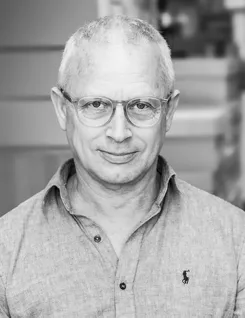
Richard has been a professional archaeologist since joining Oxford Archaeology in 1985. As a Fieldwork Senior Project Manager from 2000-2022, Richard specialised in urban and infra-structure projects and has been responsible for managing fieldwork and post-excavation projects including HS1 (Whitehorse Stone, Ebbsfleet International Station, the Southfleet Elephant excavation), the western section of Crossrail (Old Oak Common, Paddington, Tottenham Court Road and Bond St Stations), HS2 (HS2 Central and North Built Heritage for COPA JV), and multiple road-schemes (A120, A5, A421). Richard also has a background in castle/chateau excavation (Chateau de Mayenne, Chateau de Falaise, Windsor Castle, Tower of London) and has overseen work for the Royal Household at Buckingham Palace, St James’ Palace, Windsor Castle, Clarence House, Marlborough House and Kensington Palace since 2009.
As Head of Contracts and Business Development, Richard leads the tender team at the Oxford office of Oxford Archaeology as well as co-ordinating and overseeing tenders across Oxford Archaeology.
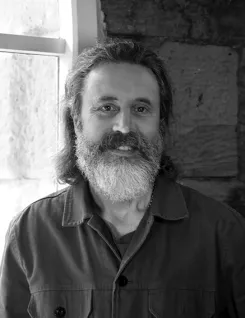
Richard holds a PhD in Archaeology and a BA (Hons) in Geography and Archaeology, both awarded by the University of Manchester. He has worked in archaeology for nearly 30 years, initially as a university-based researcher and latterly in commercial archaeology, and has been engaged in all aspects of the archaeological process, including desk-based research and assessment, excavation, post-excavation assessment and analysis, and publication. He has a specialist interest in post-excavation, and the prehistoric and early historic archaeology of northern Britain, with a particular emphasis on the Irish Sea area (south-west Scotland; north-west England, and north Wales), and has authored or co-authored numerous archaeological reports and publications relating to this area. As a Post-Excavation Project Manager, Richard oversees and is involved in many aspects of post-excavation in the Oxford Archaeology Lancaster Office, and is actively involved in the dissemination of the results from developer-funded excavations undertaken by Oxford Archaeology.
Meet the team
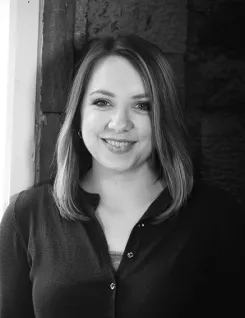
Charlotte graduated with a BA (Hons) in Classical and Historical Archaeology from the University of Sheffield in 2010 and stayed on to complete an MA in Material Culture Studies, having developed a particular interest in the material culture of the medieval period. She then completed her PhD research on late medieval book fittings recovered from English monastic sites, also at the University of Sheffield, in 2016. Following a period of work with the University, Charlotte joined the post-excavation team at Archaeology South-East (UCL) in 2017, before joining Oxford Archaeology in 2019. As a Post-Excavation Project Officer, Charlotte is responsible for the production of a wide variety of grey literature reports and publications, covering a broad spectrum of archaeological sites from different regions and ranging in date from the prehistoric period through to the modern era.
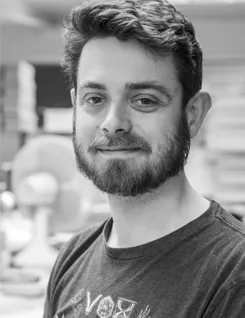
Chris holds a BA in Archaeology and an MA in Medieval Archaeology from The University of Sheffield, and joined Oxford Archaeology in 2022 following stints in commercial fieldwork, archaeological archiving, and the completion of his PhD at The University of Nottingham. He has research interests in late medieval and post-medieval material culture relating to science, medicine, retailing, and global trade and has published on distillation equipment and the evidence for chemistry at British monasteries.
Chris’ role at Oxford Archaeology includes stratigraphic work, report writing, and publication of projects with evidence spanning the Mesolithic to the twentieth century and he enjoys the process of drawing out the narrative of a site through time from the evidence which we excavate.
Chris is a Practitioner of the Chartered Institute of Archaeology, an Associate Fellow of the Higher Education Academy, and an Associate Fellow of the Royal Historical Society.
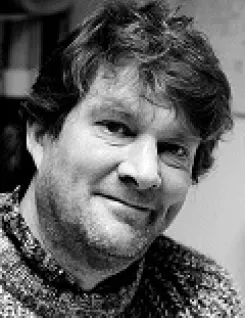
Chris is a senior project manager in the post-excavation department at our Oxford office. His responsibilities are focused on the management of the final stages of projects: assessment and analysis of the results of excavations, and publication of a final report. This role involves focusing resources as efficiently as possible upon both the needs of our clients and relevant academic research questions.
Chris has worked at OA for over 14 years on projects ranging from an early Neolithic long house in Kent to the world’s first purpose-built office building, Somerset House in London. He has special interests in the prehistoric period, especially the Neolithic and Bronze Age, and in the use of quantitative methods in post-excavation analysis.
Chris has a BSc from the Institute of Archaeology in London and a PhD from Cambridge. He has worked on numerous excavations in Britain, France, Germany, Malta and Peru, and lectured for two years at the University of California, Berkeley.
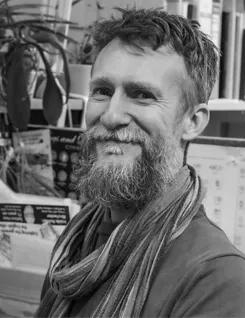
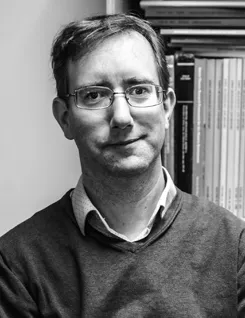
Edward Biddulph is a Senior Project Manager responsible for managing post-excavation projects, delivering reports for clients, and bringing the results of archaeological fieldwork to publication. He joined Oxford Archaeology in 2001 as a project officer, becoming a manager in 2005.
Edward graduated with a BA (Hons) in Archaeology from UCL Institute of Archaeology in 1995, staying on to complete an MA in Archaeology in 1996. He began his professional career as a field archaeologist in Bedfordshire and he subsequently worked in Buckinghamshire, Essex and Lincolnshire. Edward is a Roman pottery specialist, and his research interests include samian ware, Roman cemeteries, and cultural evolution. He is a Fellow of the Society of Antiquaries (FSA), a Member of the Chartered Institute for Archaeologists (MCIfA), and a trustee of the Study Group for Roman Pottery.

Graeme holds a BSc in archaeological science from University of Edinburgh. He has 20 years of experience working as an archaeologist, with much of that time spent in the field, excavating and reporting on a variety of rural prehistoric, Roman and Anglo-Saxon settlements across the East of England.
In 2019, Graeme turned to a purely post-excavation role at Oxford Archaeology, primarily delivering client-based reports and publications and providing editing capacity to the team. Some recently completed projects include monographs on the Anglo-Saxon/Scandinavian beginnings of Norwich and on Anglo-Saxon and medieval salt-making on the coastal marshes of King’s Lynn, Norfolk. Further research focussing on production-orientated landscapes includes an article on medieval charcoal-making and post-medieval brick production at Great Horkesley, Essex. Graeme has also developed an interest in urban archaeology with recent projects including the Anglo-Saxon and later archaeology of Duke Street, Norwich and Lower Brook Street, Ipswich.

Jo has over 25 years’ experience as a field archaeologist, post-excavation researcher and environmental specialist, with degrees from the University of Nottingham (BA Joint Hons), Bradford (MA Arch Sci) and Stirling (PhD, Geoarchaeology). Her specialist areas are soil micromorphology, environmental archaeology and the prehistory of Scotland and the Northern Isles. Prior to joining OA, Jo worked in both the commercial and academic sector, and currently holds a Visiting Fellowship with the University of Bradford and is a Relief Lecturer for the University of the Highlands and Islands (UHI).
At OA, Jo contributes to interpretation, reporting and publishing of field projects as part of the Post-Excavation team, and also provides advice and support on geoarchaeology. Currently, Jo is also co-authoring publication of the Iron Age sites of Mine Howe, Orkney, and High Pasture Cave, Isle of Skye, and spends some of each summer supervising excavation and leading geoarchaeology programmes at the excavations of the Ness of Brodgar and the Cairns Broch, both in Orkney.
Jo is a Fellow of the Society of Antiquaries of Scotland (FSAScot), a Member of the Chartered Institute for Archaeologists (MCIfA), and is a long-term Committee member and Membership Secretary for the Association of Environmental Archaeology (AEA).
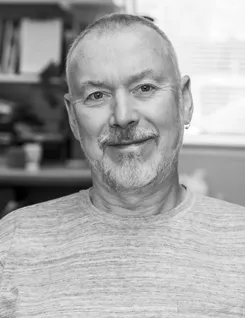
John graduated from Lancaster University in 1981 with a BA (Hons) in Archaeology. He is also a Member of the Chartered Institute for Archaeologists (MCIfA). An early interest in medieval archaeology, artefacts, and pottery in particular has been followed by nearly 35 years employment as a medieval and post-medieval pottery specialist, and sometimes illustrator. His specialist area is the pottery of south-east England although he also writes reports on clay tobacco pipes and ceramic building material. He is an active member of the Medieval Pottery Research Group. Other interests include Egyptology.
John was lucky enough to work in Italy in the early 1980s for the British School at Rome. On returning to England he continued working as a pottery specialist, first for Colchester Archaeological Trust and then, for 15 years, at Canterbury Archaeological Trust before joining Oxford Archaeology in 2005 in the same capacity. This earlier employment resulted in the authorship of a number of research publications including a corpus of medieval and later pottery from Colchester excavations, and monographs on pottery from Canterbury and Dover, as well as numerous smaller published reports on a range of ceramic topics. John continues in this role for OA, assessing and reporting on pottery and other ceramic material from Oxford Archaeology's excavations across southern England and sometimes further afield.

